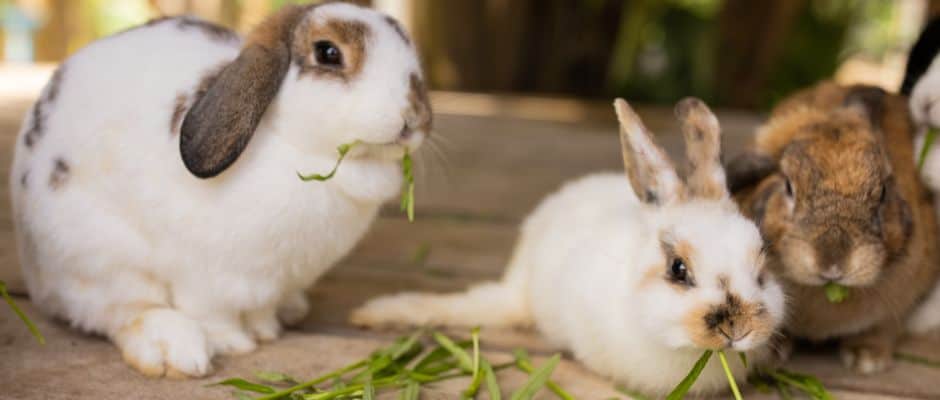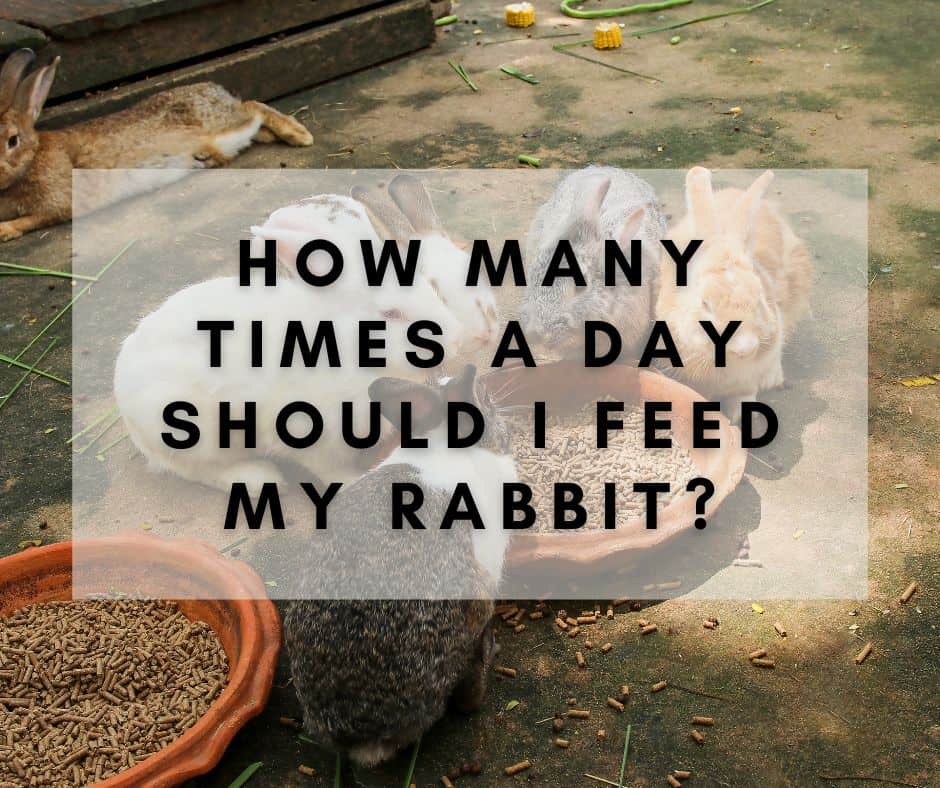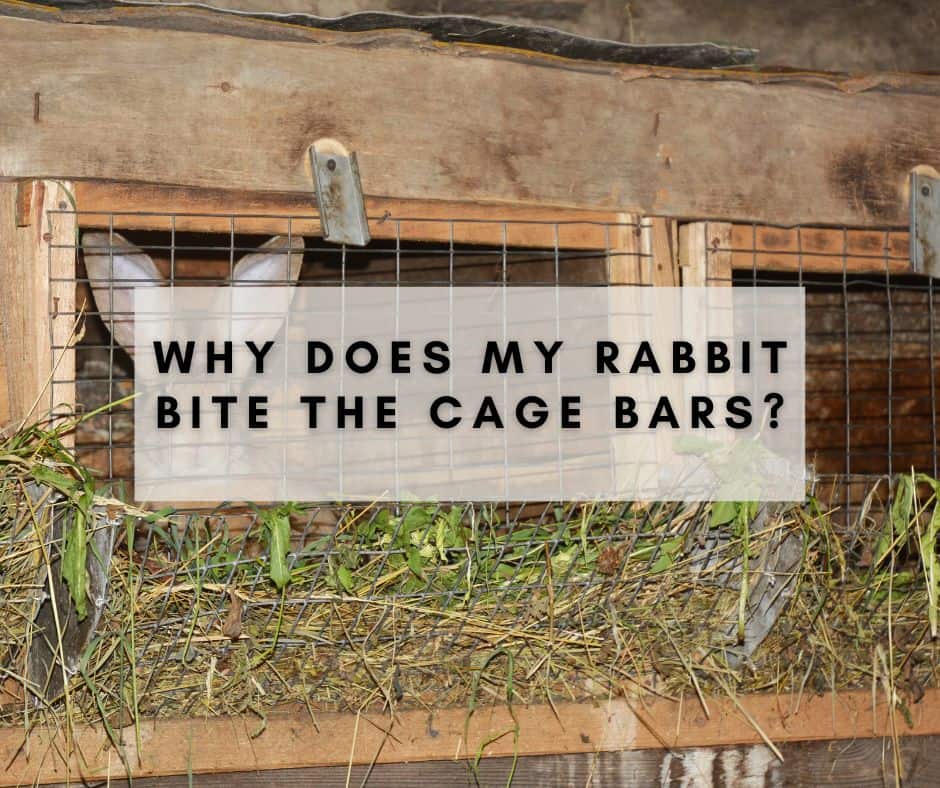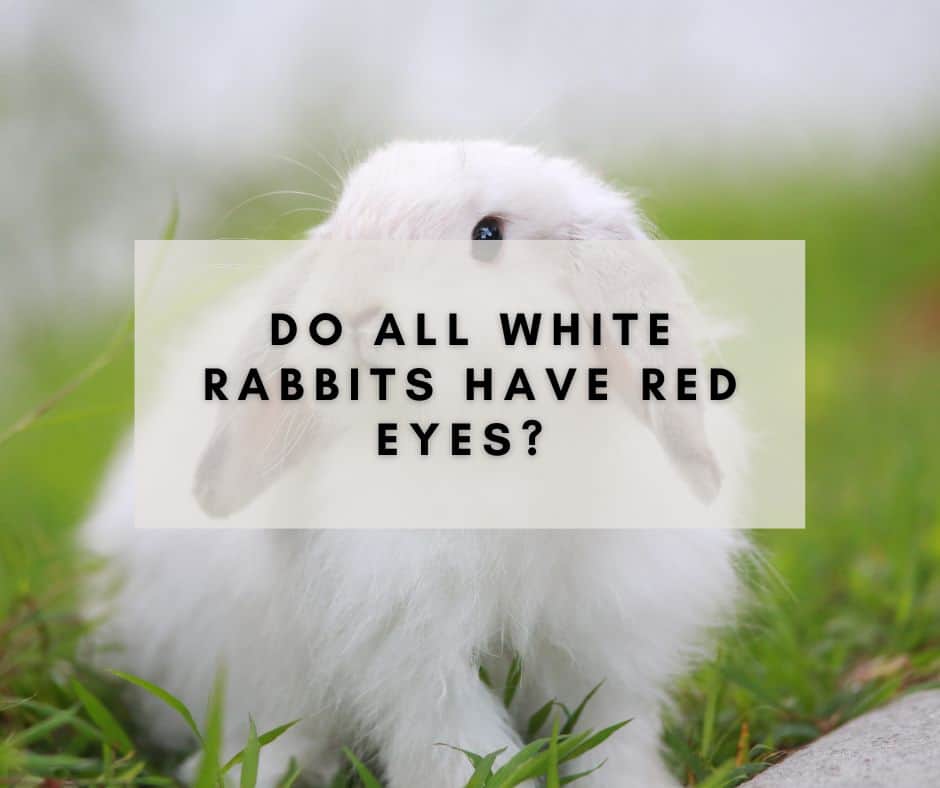Are you a new rabbit owner wondering how many times a day you should feed your furry friend? Or are you a seasoned owner looking to ensure that you’re providing the best possible care for your rabbit? The truth is, the number of times you should feed your rabbit per day depends on several factors, including their age, weight, and overall health.
As a general rule, adult rabbits should be fed twice a day, once in the morning and once in the evening. However, it’s essential to monitor your rabbit’s weight and adjust its feeding schedule and portions accordingly. Overfeeding your rabbit can lead to obesity, which can cause a host of health problems, including digestive issues and joint pain. On the other hand, underfeeding your rabbit can result in malnutrition, which can also lead to serious health problems.
Contents
Why It’s Important to Feed Your Rabbit the Right Amount
Feeding your rabbit the right amount of food is crucial for their health and well-being. Rabbits have a unique digestive system that requires a specific diet to function properly. Overfeeding or underfeeding your rabbit can lead to various health problems, such as obesity, dental issues, and digestive problems.
Here are some reasons why it’s important to feed your rabbit the right amount:
Prevent Obesity
Rabbits are natural grazers and can eat up to 30 times a day, but that doesn’t mean they should, especially not pellets. Overfeeding your rabbit can lead to obesity, which can cause health problems such as heart disease, diabetes, and arthritis. To prevent obesity, it’s important to limit the amount of food you give your rabbit and to provide them with a balanced diet. However, they should always have access to fresh hay!
Promote Dental Health
Rabbits’ teeth grow continuously throughout their lives, and they need to grind their teeth down by chewing on hay and other fibrous foods. If rabbits don’t get enough hay or other fibrous foods, their teeth can overgrow, leading to dental problems. By feeding your rabbit the right amount of hay and other fibrous foods, you can promote their dental health and prevent dental issues.
Maintain Digestive Health
Rabbits have a sensitive digestive system and require a specific diet to maintain their digestive health. Feeding your rabbit the wrong type or amount of food can lead to digestive problems such as diarrhea, constipation, and bloating. By feeding your rabbit the right amount of hay, fresh vegetables, and pellets, you can maintain their digestive health and prevent digestive issues.
In conclusion, feeding your rabbit the right amount of food is crucial for their health and well-being. By providing your rabbit with a balanced diet and monitoring their food intake, you can prevent health problems and ensure that your rabbit stays healthy and happy.

How Many Times a Day Should You Feed Your Rabbit?
As a rabbit owner, you may be wondering how many times a day you should feed your furry friend. The answer to this question depends on several factors, including your rabbit’s age, weight, activity level, and overall health.
Factors That Affect Feeding Frequency
Before we dive into the recommended feeding schedule, let’s take a look at some of the factors that can affect how often you should feed your rabbit:
- Age: Baby and young rabbits require more frequent feedings than adult rabbits.
- Weight: Overweight rabbits may need to be fed less often to help them maintain a healthy weight.
- Activity level: More active rabbits may need to be fed more often than less active rabbits.
- Health: Rabbits with certain health conditions may require a specific feeding schedule.
Recommended Feeding Schedule for Adult Rabbits
Most adult rabbits should be fed twice a day, once in the morning and once in the evening. Each feeding should consist of a small number of pellets, fresh vegetables, and unlimited hay. Pellets should make up no more than 5% of your rabbit’s daily diet, while hay should make up the majority of their diet.
It’s important to monitor your rabbit’s weight and adjust their feeding schedule as needed. If your rabbit is overweight, you may need to reduce the number of pellets they are receiving or feed them less often.
Feeding Schedule for Baby and Young Rabbits
Baby and young rabbits require more frequent feedings than adult rabbits. When you first bring your baby bunny home, they will need to eat about four times per day. As they grow, you can gradually decrease the number of meals until they are eating once or twice a day.
It’s important to provide your young rabbit with unlimited hay and a small number of pellets at each feeding. You can also offer them fresh vegetables, but be sure to introduce new foods slowly to avoid upsetting their sensitive digestive system.
The number of times you should feed your rabbit per day depends on several factors, including their age, weight, activity level, and overall health. Most adult rabbits should be fed twice a day, while baby and young rabbits require more frequent feedings. Remember to monitor your rabbit’s weight and adjust their feeding schedule as needed to ensure they stay happy and healthy.
What to Feed Your Rabbit
When it comes to feeding your rabbit, it’s important to know what foods they need to stay healthy. A rabbit’s diet should consist of hay, vegetables and fruits, and pellets. In this section, we’ll go over each of these categories in more detail.
Hay
Hay is an essential part of a rabbit’s diet. It provides the necessary fiber to keep their digestive system healthy. Timothy hay is a popular choice for rabbits, but other types of grass hay, such as orchard grass, can also be fed. Make sure to provide fresh hay daily and remove any old or soiled hay.
Vegetables and Fruits
Vegetables and fruits should be fed to your rabbit in small amounts. Too much can upset their digestive system. A good rule of thumb is to feed one to two tablespoons of vegetables per five pounds of body weight, and one to two tablespoons of fruit per week. Introduce new vegetables and fruits slowly, one at a time, to make sure your rabbit can tolerate them.
Here are some vegetables and fruits that are safe for rabbits to eat:
- Vegetables
- Fruits
- Carrots
- Apples (no seeds)
- Paprika
- Broccoli
- Kale (small amounts)
- Bananas
- Spinach
Pellets
Pellets should be fed to your rabbit in moderation. Adult rabbits should eat around 1/4 cup of pellets per day for every size pound of weight they have. Make sure to choose high-quality pellets that are specifically formulated for rabbits.
It’s important to remember that a rabbit’s diet should consist mainly of hay. Vegetables, fruits, and pellets should be fed in small amounts to supplement their diet. Providing your rabbit with a balanced diet will help keep them healthy and happy.
How Much to Feed Your Rabbit
When it comes to feeding your rabbit, it’s important to provide them with a balanced diet that meets their nutritional needs. According to Pet Keen, rabbits require up to 20% fiber and 45% carbs in their daily diet. However, it’s essential to note that these animals have sensitive digestive systems and can react adversely to sudden changes in their diet. Therefore, it’s crucial to introduce new foods gradually.
Hay
Hay is an essential part of a rabbit’s diet, and it should make up the bulk of their daily intake. High-quality grass hay, such as Timothy, orchard, or brome, should be provided to your rabbit in unlimited quantities. It’s important to ensure that the hay is fresh and free from dust and mold.
Vegetables
Fresh vegetables are another critical component of a rabbit’s diet. According to The Bunny Lady, about 10% of your rabbit’s daily food should be made up of fresh leafy greens. The amount you need to give will depend on the size of your rabbit, so use the guideline of providing at most 2.5 cups of greens every day for a 5-pound rabbit. It’s important to introduce new vegetables gradually and watch for any signs of digestive upset.
Pellets
Pellets are not a necessary component of a rabbit’s diet, but they can be provided in small amounts. According to VCA Animal Hospitals, rabbits should have a limited number of pellets in their diet. It’s recommended to give your rabbit roughly no more than 1/8 cup of pellets per 3-4 pounds of body weight per day.
Water
Water is crucial for rabbits, and they should have access to clean, fresh water at all times. You can provide water in a bowl or a water bottle, but it’s important to ensure that it’s changed daily and free from contaminants.
In summary, feeding your rabbit a balanced diet that includes hay, fresh vegetables, and a limited number of pellets will help ensure that they receive the nutrients they need to stay healthy. It’s essential to introduce new foods gradually and watch for any signs of digestive upset. Providing your rabbit with clean, fresh water at all times is also crucial for their overall health and well-being.
Pellet and Hay Requirements by Weight
This table outlines how much pellets and hay rabbits need in relation to their weight, based on recommendations from the House Rabbit Society, a nonprofit organization dedicated to the welfare of domestic rabbits:
| Rabbit Weight | Pellets (per day) | Hay (per day) |
|---|---|---|
| 3 lbs | 1/8 cup | Unlimited access to hay (at least their body size per day) |
| 6 lbs | 1/4 cup | Unlimited access to hay (at least their body size per day) |
| 8 lbs | 1/2 cup | Unlimited access to hay (at least their body size per day) |
| 10 lbs | 3/4 cup | Unlimited access to hay (at least their body size per day) |
| 12 lbs | 1 cup | Unlimited access to hay (at least their body size per day) |
Please note that these are general guidelines and may need to be adjusted based on the individual needs and health of your rabbit. It’s always best to consult with a veterinarian or a rabbit-savvy animal nutritionist for specific dietary recommendations for your rabbit.
Signs of Overfeeding and Underfeeding
It’s important to feed your rabbit the right amount of food to keep them healthy. Overfeeding and underfeeding can both have negative consequences for your rabbit’s health. Here are some signs to look out for:
Signs of Overfeeding
- Obesity: Rabbits that are overfed can become overweight, which can lead to health problems such as heart disease, arthritis, and diabetes.
- Soft or runny feces: Overfeeding can cause your rabbit to produce soft or runny feces, which can lead to diarrhea and dehydration.
- Lack of appetite: Rabbits that are overfed may lose their appetite because they are already full. This can lead to nutrient deficiencies and other health problems.
- Dental problems: Overfeeding can cause your rabbit’s teeth to become overgrown, which can lead to dental problems and difficulty eating.
Signs of Underfeeding
- Weight loss: If your rabbit is not getting enough food, they may lose weight. This can be a sign of malnutrition and other health problems.
- Lack of energy: Rabbits that are not getting enough food may become lethargic and have less energy than usual.
- Eating non-food items: Hungry Rabbits may start to eat non-food items such as cardboard or paper. This can be dangerous and lead to digestive problems.
- Digestive problems: If your rabbit is not getting enough food, they may experience digestive problems such as constipation or diarrhea.
It’s important to monitor your rabbit’s weight and overall health to make sure they are getting the right amount of food. If you notice any of these signs, adjust your rabbit’s diet accordingly and consult with a veterinarian if necessary.
Conclusion
Feeding your rabbit the right amount of food is crucial to their health and well-being. Based on the information we’ve gathered, here are some key takeaways:
- Most rabbits can be fed twice a day, but it’s important to monitor their weight and adjust the amount you’re feeding as necessary.
- If your rabbit seems to be gaining or losing weight, try feeding them some pellets as well.
- Baby rabbits (under 3 months old) should be fed unlimited hay and a small amount of pellets once or twice daily. Juvenile rabbits (3-8 months old) should continue to receive unlimited hay but slowly increase the amount of pellets they’re offered, up to 2 tablespoons per day.
- Rabbits require up to 20% fiber and 45% carbs in their daily diet. Hay and pellets are excellent sources of these nutrients.
- It’s also important to provide your rabbit with fresh water daily and to ensure that hay is always available.
- As nibblers, rabbits should have food available at all times. However, it’s important to monitor their weight and adjust their food intake as necessary.
Remember, every rabbit is different, so it’s important to monitor your rabbit’s weight and adjust their food intake accordingly. By following these guidelines and working with your veterinarian, you can help ensure that your rabbit stays healthy and happy.







